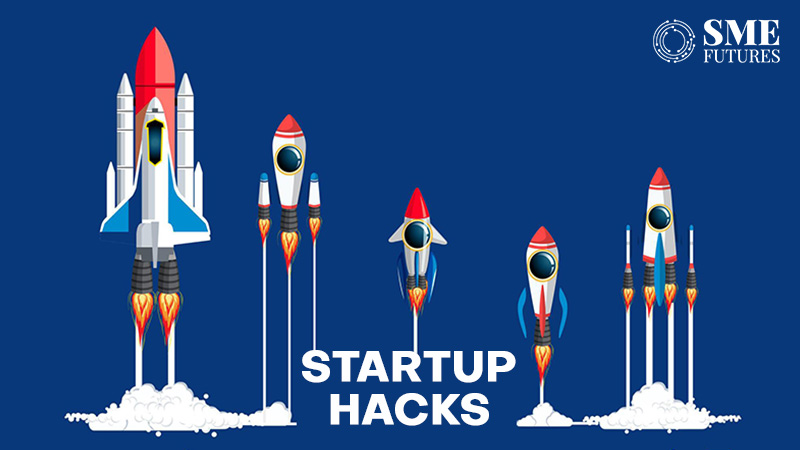Startup world is overwhelmingly lucrative, right! It’s a dreamworld, where few entrepreneurs hit the jackpot, while others don’t. If you are into statistics, they say around 90 per cent of the startups don’t reach the height they intended to. That’s huge!
Summarising various reports, it could be said that these companies have an average failure rate of 10 per cent for the first year. However, it’s the second and third year where most (around 70 per cent) of them breakdowns.
There are endless reasons why startups fail. But some of the most common reasons for startups going down can be attributed to misaligned product market-fit, insufficient funding, not focused on customer needs, wrong workforce, competition, ignoring market trends and so on. However, the most painful for companies is when they are unable to catch the eye of market and generate the business.
In this landscape, success is not just about following the conventional path; it often involves embracing unconventional wisdom and thinking outside the proverbial box. To know how entrepreneurs are killing the challenges, we ask few of them about their strategies. Let’s delve into some startup hacks shared by them that highlight the unconventional approaches leading to triumph.
Catching customer pulse gave success
Understanding what consumers want is the half battle won. This was the case with the Founders of Zoomcar, Greg Moran and David Back.
In 2013, they founded a self-drive car rental company out of Bengaluru, when having a car was a big status symbol. Now, having a unique business model that catches consumer pulse has become a success story that is currently listed on NASDAQ, the international bourse.
Being a pioneer in the car-sharing industry has given them maximum thrust, according to Greg Moran. For Indian customers, getting access to convenient and affordable car experience with not burning a hole in their pockets is a big thing, that’s why this startup worked.
“Zoomcar has revolutionised mobility solutions in emerging markets. Not only has our creative approach been a game-changer for travel, but it has also greatly aided in the expansion of the sharing economy. Being listed on NASDAQ underscores our unwavering dedication to quality and openness and demonstrates investors’ faith in our mission,” says Moran.
Education sector is a tough nut to crack
In Indian context, every nook and corner have a study circle. The market is as saturated as our population. Over the years, not just Indian schools, colleges, but even private coachings have over mushroomed. Now over 13,771 edutechs (as of June 2023), that may be struggling to acquire their marks on the market. So, what could be the approach, answers Poshak Agrawal, Co-Founder, Athena Education.
In 2014, he and Co-Founder Rahul Subramaniam set out to make a meaningful impact within the sector. For them it was one-on-one conversations that worked out as the winning strategy.
“Our approach was far from conventional for the Indian market at the time–we went straight to the heart of each student’s deep driving desire to understand what makes them truly unique,” says Agrawal.
Mentors at heart, they interacted with the children of acquaintances and reflected on the gaps in academic experiences.
“We discovered that students lacked structured avenues for academic and extracurricular exploration. Beyond that, we learned that there were far more Indian applicants to foreign universities than there was guidance available to them. Thus, we started Athena, a holistic education consultancy modeled after the interdisciplinary, liberal arts ethos of our alma mater, Princeton University,” he says.
Believing every child has potential but require strategic guidance to build an outstanding profile and mindset to make them stand out in the highly competitive admissions process, these entrepreneurs discarded the one-size-fits-all approach, favouring tailored strategies for individual students.
“We not just shape scholar profiles, but also nurture holistic development. Our team of mentors’ hail from prestigious institutions like Princeton, Williams, Michigan, and the Bhabha Atomic Research Centre, and bring unparalleled expertise to the students’ personal transformation,”
Door-to-door banking
Door-to-door sales concept has done wonders for retail and numerous brands. The concept is as old as the first vendor went out to do business. However, one fintech, SahiBandhu took the concept to notch up their customer base.
“SahiBandhu Gold Loan’s ground-breaking phygital concept, which combines physical outreach along-with digital end to end tech integration, drove the company to new heights in 2023,” says Mehak Srivastava, Head of Marketing, SahiBandhu- Gold Loan Aggregator Platform.
With their combo strategy the firm penetrated 620+ districts, covered 11,000+ PIN codes, and worked with 9,500+ branches of big banks while disbursing gold loans worth Rs 11,500+ Cr. According to Srivastava, with unique doorstep gold loan service structure, the company offers consumers a one-of-a-kind experience for gold loans with end-to-end digitalisation. “With our latest partnership with KBL, we have opened up new doors by providing digital-led doorstep gold loan solutions, making the gold loan journey secure, user-friendly, and hassle-free,” she adds.
Ditch the metros
Startups or companies work best in big cities, is no longer a viable statement. Taking this theory ahead, another fintech founder strategise to use Chandigarh as his base.
But initially for Finvasia, Co-Founder & MD Sarvjeet Virk it was the biggest challenge.
“Setting up a startup comes with a host of challenges. In our case, setting up a business in a supposed ‘small town’ like Chandigarh had people doubting us. We faced challenges with limited infrastructure, networking opportunities, and partnerships,” he points out.
He solved this problem by incepting the local workforce. “By hiring and nurturing local talent, we turned these challenges into strengths over time. With proper guidance and opportunities, we found that the local talent was as skilled as their counterparts in bigger cities. After COVID, with more people working remotely, we had access to a broader talent pool. Stay focused on the problem statement, with new technology and innovation as the foundation for your growth,” he says.
D2C in hospitality
Direct to consumer (D2C) in lifestyle is something we all know, but D2C in hospitality seems bizarre. To begin with, how it’s going to work. However, due to fierce competition in the hospitality sector, the travel and hospitality industry is experiencing a dramatic increase in D2C startups that use cutting-edge technology in 2024.
These innovative startups are changing the way the industry looks by providing services that are immersive and offer unmatched value for money. One of them is The Hosteller, a backpacker self-operated hostel chain.
Being a wanderlust, self-taught Founder & CEO Pranav Dangi is himself a backpacker and while travelling excursion to Europe germinate the seed for The Hosteller. It leveraged hostel stays as a successful business model.
Dangi reflects on the successful business model and strategy they use.
The goal was to provide the seamless, social accommodation experience that makes traveller time worth every minute. So, the company focused on offbeat locations, unique properties and personalised experiences in a hostel environment with affordable prices starting at Rs 500. That’s how The Hosteller gained popularity among backpackers, who want to travel at minimum expenses.
“It has always been important for us to provide guests with experiences and services that make their stay simpler and more enjoyable. However, due to the unorganised nature of the sector, sometimes services like car rentals, ticketing, events and activities become doleful to roll out, maintain and keep track of. Travellers, especially younger generations, often seek unique and personalised experiences when they explore new places,”
Besides that, their in-house tech intervention, Glu has been the gamechanger for their business. Glu is a one-of-a-kind web experience developed by our Tech team to provide guests with a swift, seamless and sensational getaway. It allows guests staying at the hostel to choose from a plethora of services. Seamlessly combining convenience with innovation, Glu facilitates services in a few clicks, ensuring the guest makes the most of their stay, tells Dangi.
“Ever since its launch in October 2023, we have had massive success with Glu on both ends. It has reduced our turnaround times and allowed us to gather much needed intel about guest needs all while providing our guests with heightened comfort, the flexibility to mould their travel plans and get their needs addressed quickly,”











